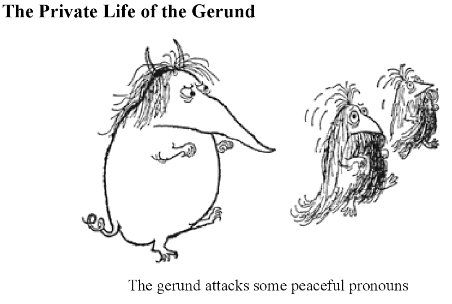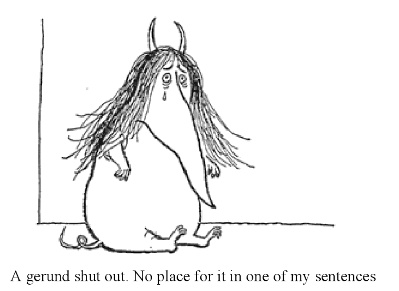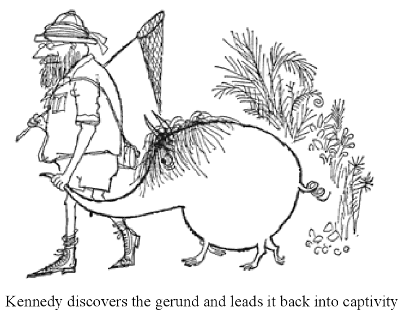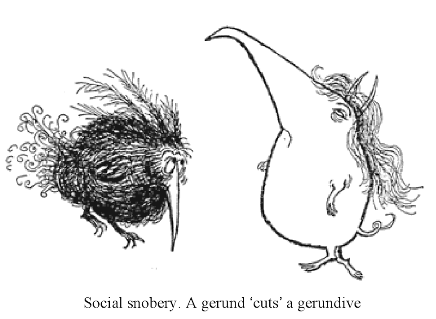Gerund: Difference between revisions
Jump to navigation
Jump to search
Amwelladmin (talk | contribs) No edit summary |
Amwelladmin (talk | contribs) No edit summary |
||
| Line 1: | Line 1: | ||
A [[gerund]] is a {{tag|verb}} form which functions as a {{tag|noun}}, in {{tag|Latin}} having a (declinable) ending ''-ndum'', and in English ending in ''-ing'' | {{pe}}A [[gerund]] is a {{tag|verb}} form which functions as a {{tag|noun}}, in {{tag|Latin}} having a (declinable) ending ''-ndum'', and in English ending in ''-ing'' | ||
''Do you mind my doubting you?'' (as [[René Descartes]] once said to himself). “Do you want that throwing in the bin?” Compare with a [[gerundive]], a {{tag|verb}} which functions as an {{tag|adjective}}. | ''Do you mind my doubting you?'' (as [[René Descartes]] once said to himself). “Do you want that throwing in the bin?” Compare with a [[gerundive]], a {{tag|verb}} which functions as an {{tag|adjective}}. | ||
Revision as of 17:24, 27 November 2019
|
Towards more picturesque speech™
|
A gerund is a verb form which functions as a noun, in Latin having a (declinable) ending -ndum, and in English ending in -ing
Do you mind my doubting you? (as René Descartes once said to himself). “Do you want that throwing in the bin?” Compare with a gerundive, a verb which functions as an adjective.
Where better to end than the grate n molesworth, the curse of st custards, as any fule kno.
See also
Plain English Anatomy™ Noun | Verb | Adjective | Adverb | Preposition | Conjunction | Latin | Germany | Flannel | Legal triplicate | Nominalisation | Murder your darlings



